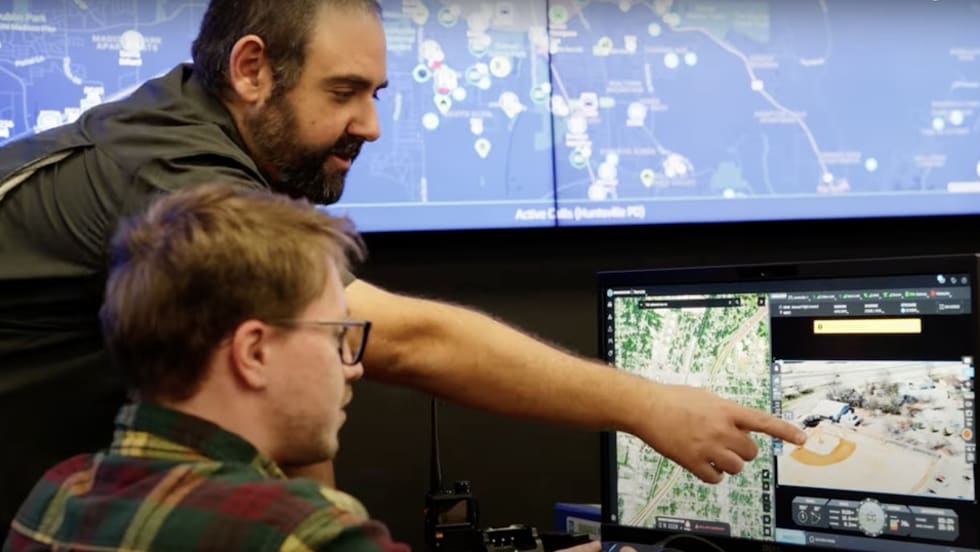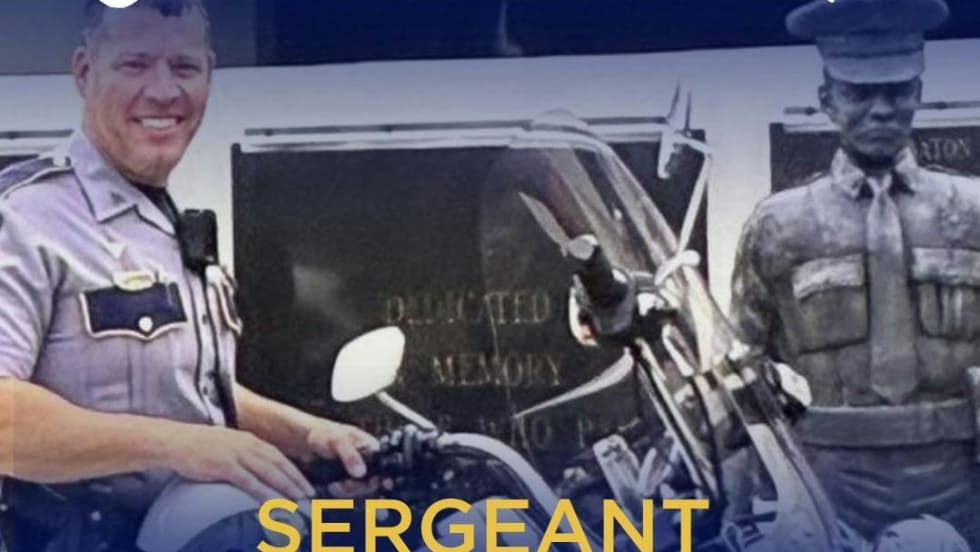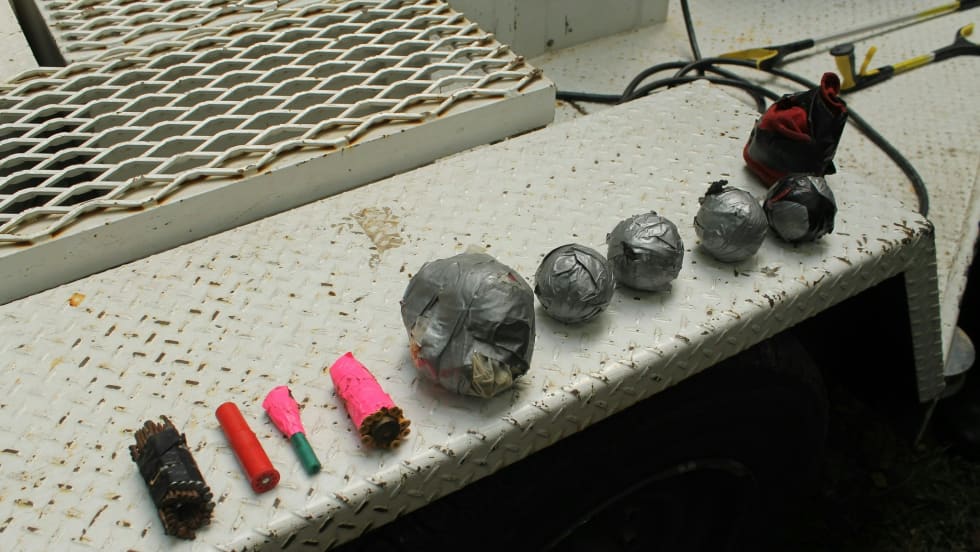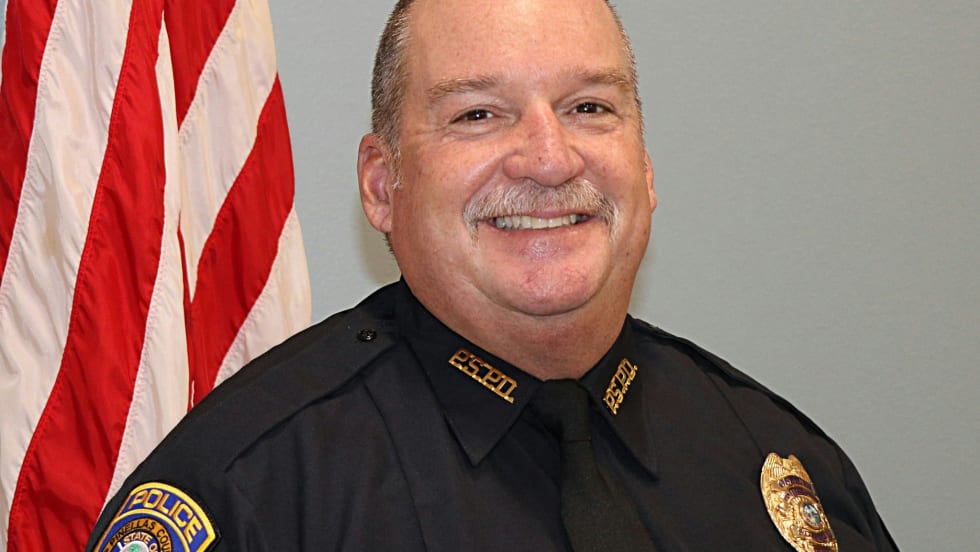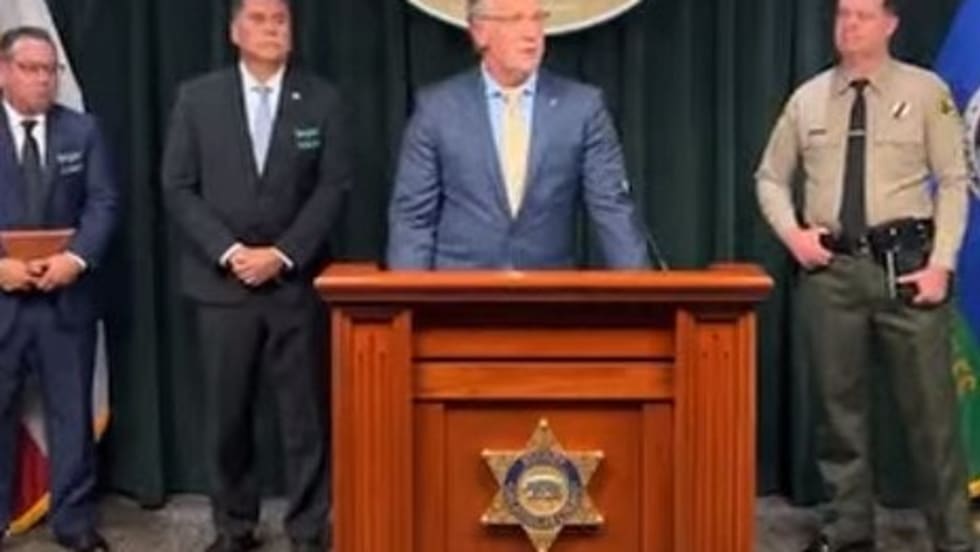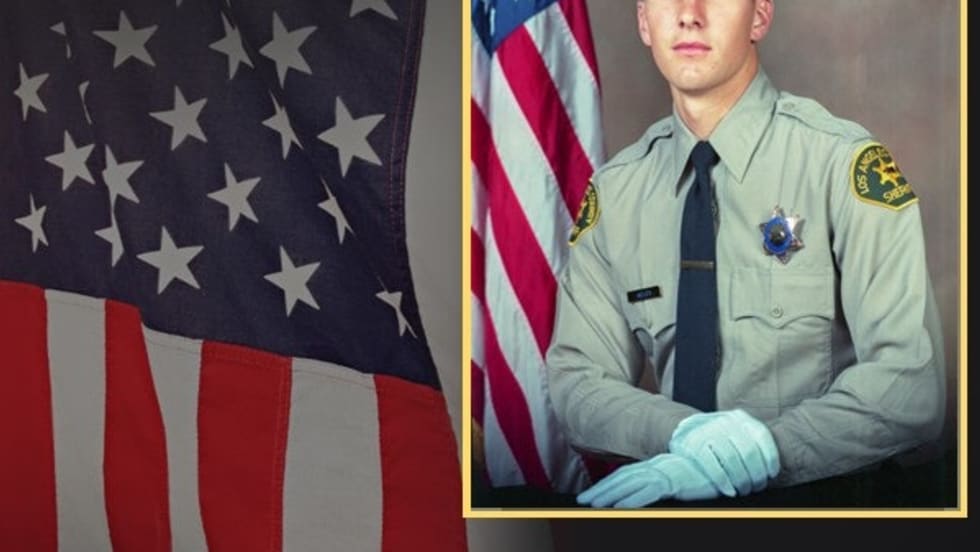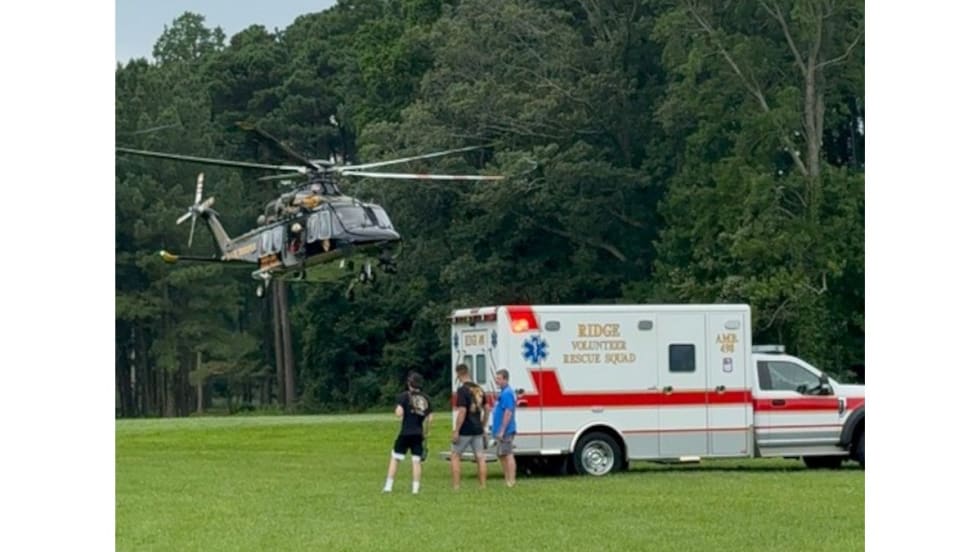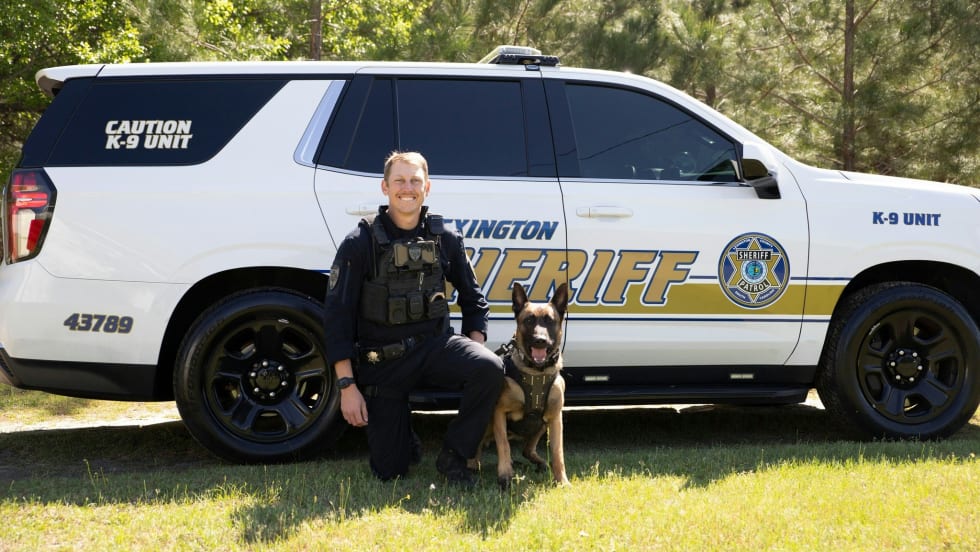Law enforcement is not necessarily known as a family-friendly profession; long hours and late shifts combined with frequent on-call status can make it difficult to sustain long-term relationships. But when a husband and wife are in it together, when they’ve both chosen a career in law enforcement, communication, understanding, and support are almost a given. These spouses get it.
Law enforcement is not necessarily known as a family-friendly profession; long hours and late shifts combined with frequent on-call status can make it difficult to sustain long-term relationships. In addition, civilian spouses often find it difficult to cope with the inherent dangers and unique stressors that cops face on a daily basis.
But when a husband and wife are in it together, when they’ve both chosen a career in law enforcement, communication, understanding, and support are almost a given. These spouses get it; they know that being a cop is rarely a nine-to-five endeavor. They understand that late nights and last-minute paperwork are a part of the job, and that no schedule is set in stone.
More importantly, the spouse who’s also in law enforcement understands the emotional ramifications of the job; the danger, the stress, the frustrations, and the satisfactions unique to the field. This spouse has usually been there and done that, and as such is able to empathize and communicate more easily than someone who has no first-hand experience with the profession.
Couples who are both law enforcement professionals also have another big advantage: mutual respect and trust. They know exactly what it takes to be a cop, and as such they are able to fully appreciate the other’s strength and dedication.
The five couples profiled below can attest to all that and more; they’ve found that sharing a profession has brought them closer, both on the job and off.
The Art of Negotiation
Chris Myers knew exactly what to do when he was sent to an emergency call at the Seattle Federal courthouse, where a man armed with explosives had essentially taken over the building.
The patrol officer took his rifle out of his car along with his cell phone, and immediately called his wife, Officer Suzanne Parton, a negotiator assigned to crisis intervention in the same department.
“There’s a man with a grenade at the courthouse,” he said to her. “Get over here now!”
It was only later that a sergeant at the scene pointed out the uniqueness of Myers’ situation. “When I call my wife,” said the sergeant wryly, “I invite her to lunch or to coffee, not to a courthouse to negotiate with a man with a grenade!”
But after 10 years of marriage, two children, and a decade and a half in law enforcement each, almost all of which has been spent in the same department, the two have learned the importance of mutual trust and respect. While their careers have taken very different paths, they admire each other’s diverse natures.
“As police officers, we’re very different,” says Suzanne. “Our styles are very, very dissimilar. With my mental health work, I tend to have a completely different angle than he does. But there’s a need for both of us and we appreciate that about each other. We’re able to turn to each other for another perspective.”
They’ve also managed to keep a fair amount of autonomy on the job, which can be difficult for couples in law enforcement, and Suzanne attributes this to the fact that she decided to keep her maiden name when they married.
“I wanted my reputation to be mine,” she says. “I didn’t want to be judged as a couple; I wanted to be who I was.”
While the two have had excellent luck in their dealings with co-workers and superiors, Suzanne believes it’s important to be careful when considering a relationship with another law enforcement officer.
“I see quite a lot of dating among police officers,” she says, “and the thing to keep in mind is that it’s not just about your relationship, it’s about your career.”
Family Guys
Married for almost 11 years, with 30 years of law enforcement between them, Jeffrey and Kathleen Kirkham have found that one of the biggest challenges they face as a couple is juggling family and work.
“When you marry someone in the same field you have to learn to separate police work from your home life,” says Kirkham, a lieutenant at the City of Mesa Police Department in Arizona. “You need to make a conscious effort not to bring problems or issues from work home with you.”
It can be difficult for he and his wife, who currently supervises the undercover Neighborhood Drug Interdiction Team in the same department, to find time for each other as well as time together with their two children.
“You need to set priorities and schedule time for yourselves,” says Kirkham. “And once you set a schedule you have to stick to it and not let other things get in the way. You have to maintain focus on your family; it’s very important that you spend time with your children and not be totally focused on your career.”
Kirkham has found that being assigned to an administrative position helps as far as maintaining some semblance of family life, although his wife’s schedule, which includes long and varied hours as well as many evening shifts, can still wreak havoc on personal time.
But despite the scheduling difficulties, the two believe that it’s their shared career experiences which have helped them stay together.
“Many divorces occur within the law enforcement field,” says Kirkham, “mostly due to spouses not understanding the long hours and how the system works. You can’t just go home because your spouse wants you to when you are in the middle of an arrest or serving a search warrant. Kathleen and I know what is expected, and what has to be done.”
Kirkham had been in law enforcement for several years before he met his wife. He’d had a hard time finding someone with similar values and aspirations. But he’s found that he and Kathleen share common goals, personally as well as professionally.
“We are both stable in our relationship and focus on our two sons. We have interests outside law enforcement, which can be just as enriching as anything at work.”
Together Time
While many couples have to actively work at finding time together, Teresa and Jeffrey Hollon have solved that problem by working similar shifts in nearby departments.
“With both of us on basically the same shift, we can still see each other on the street and sometimes even eat dinner together,” says Jeff, an 11-year veteran as the Deputy Sheriff/Collision Investigator at the Sheriff’s Department in Scott County, Kentucky. “We also sometimes answer calls together since, although we are on different channels, we can scan each other’s radios.”
Married for only a year, Jeff and his wife, who’s been a patrol officer in the Georgetown (Ky.) Police Department for five years, manage to communicate often during the course of an evening’s work. The only downside to being in such close proximity is that they’re both very aware, on an ongoing basis, of just how dangerous their profession can be.
“I can listen to his calls and hear when he has to go to a ‘shots fired’ call or a fight in progress with weapons involved,” says Teresa. “I can hear when he calls for help or if he gets injured and it’s a very scary feeling. If I wasn’t a police officer I wouldn’t know what his day consisted of if he didn’t tell me.”
When they’re able to take the same calls, however, they agree that knowing how to read each other’s signals is a plus. Even in difficult situations they’re able to communicate nonverbally via hand motions and facial expressions.
“I can look at him and just with eye contact know what he is thinking or what he’s going to do,” says Teresa. “And we both know how the other operates, so it makes things much easier on the streets.”
The fact that they’re both competent and in control at their jobs does make for some unique challenges at home, however.
“We are so used to being in control of every situation at work,” says Jeff, “that when we come home we sometimes struggle with each other for the tiniest amount of control. All the way from who turns off the lights to who has control of the remote!”
Stress Relief
Stress is a given in the law enforcement profession, and can obviously be very detrimental to both career and family.
“If the stress gets to you and sinks into you really deep, it can have some psychological and physiological effects,” says Gary Herman, a deputy sheriff who works K-9 patrol at the Hillsborough County Sheriff’s office in Florida.
It helps a lot, he says, that his wife, Detention Lieutenant Anne Herman, works at the Falkenburg Road Jail detention center in the same county, and is able to understand his feelings firsthand.
“Anne deals with the same people that I deal with,” says Gary, “and she knows what it’s like. So when I come home angry or frustrated she can be open rather than judgmental. She’s got a better understanding as far as what I do.”
And of course, the support works both ways. “She can come home and vent about her absolutely horrendous day,” Gary says, “and I’m able to soak it all in and understand what she’s going through and who she’s dealing with. Especially because I only deal with these people for a short period of time on the road whereas she deals with them for 10 or 12 hours a day.”
That communication, Gary believes, is the key to a successful relationship, and fostering it is a priority for both of them.
“When you’re running late because you had a late call and you’ve got to get paperwork done,” he says, “it’s important to give that courtesy call to your spouse to say when you’ll be home. Those little things tend to be important.”
Gary, who has almost 20 years of experience in law enforcement, to Anne’s 16, says that they’ve watched each other grow and change as they’ve progressed in their careers. For example, when Gary joined the Sheriff’s Office, Anne commented on how he suddenly seemed to call everyone “pal” and stayed “on duty” even on his days off.
“But then when she became supervisor the roles kind of reversed and she’d come home in work mode,” Gary says with a laugh. “I’d have to say ‘Hey, it’s time to turn off the lieutenant bars or the sergeant stripes; this is the husband, not the inmate or the deputy you’re talking to, here!’”
A Passion for Predators
For Mike and Cassandra Harris, who work side by side on a daily basis, it can sometimes be hard to separate work and home life, but they don’t mind, given their shared dedication to their career.
As investigators at the Jefferson County (Colo.) District Attorney’s Office, in the Crimes Against Children Unit, they know that a lot is riding on their ability to track and apprehend pedophiles. To that end, Mike spends his days and nights trolling for people who are actively seeking out sexual relationships with underage children, portraying himself as a young teen in chat rooms. Once he’s been propositioned, he turns things over to the diminutive Cassandra, who is youthful enough to fool the would-be predators, both on the phone and in person.
Many couples wouldn’t be able to handle spending almost every hour of the day and night together, but Mike enjoys the long hours they put in, as well as the time they spend biking and going to movies in their off hours.
“I never tire of being around Cassandra,” he says. “She’s the most refreshing person I’ve ever met. She’s like a breath of fresh air and is truly my best friend.”
Although Mike is occasionally concerned for Cassandra’s safety, especially when they’re setting up a sting, he appreciates and respects her dedication to her job, which matches his own.
“In my 26 years of law enforcement I have never had a partner with the same drive to get the job done,” he says. “A lot of partners just want to put in the hours and go home. You can’t do that in this field; if you do, a child could get hurt.”
Together Mike and Cassandra have managed to apprehend 70 child predators since they began working together almost 10 years ago and the only difficulty they’ve encountered, Mike says, is scheduling time together away from work. He does admit, however, that Cassandra has an additional burden to bear.
“She has to put up with me when I get into hyper mode,” Mike says wryly. “If someone on our arrest team doesn’t follow a direction or procedure I can easily get edgy, although Cassandra is so level headed that she never reacts negatively. But she’s the first and only one who can tell me to straighten up and to quit being a jerk!”
Kelly Kyrik is a freelancer who writes about law enforcement and health issues.
10 Tips On How To Sustain A Dual-Cop Marriage
Listen
Let your spouse vent whenever possible; listen without judgment and don’t try to “fix” the problem.
Talk
Talking about work with an understanding partner helps relieve stress, and can ensure that you’re calm and centered both at work and at home.
Foster Mutual Respect and Trust
You know how tough it is to work in law enforcement; respect your spouse’s strengths and trust his or her judgment.
Be Flexible
Be ready to change plans at a moment’s notice and don’t be resentful when your spouse has to stay late or go in early.
Resolve Conflict Early
Never go to work mad at each other; remember, this shift could be your last.
Make Time For Each Other
Plan date nights where the two of you can focus solely on each other and spend one-on-one time together.
Make Time For Family
Schedule quality time with your children and your family; maybe an annual vacation or even just dinner at a restaurant once a week.
Be Professional
Don’t flaunt your relationship or act in an unprofessional manner when at work.
Don’t Meddle
Don’t over involve yourself in your spouse’s career, including his or her professional battles and relationships.
Separate Work and Family
Try to leave your work at the office and don’t let your personal life interfere with your professional life


